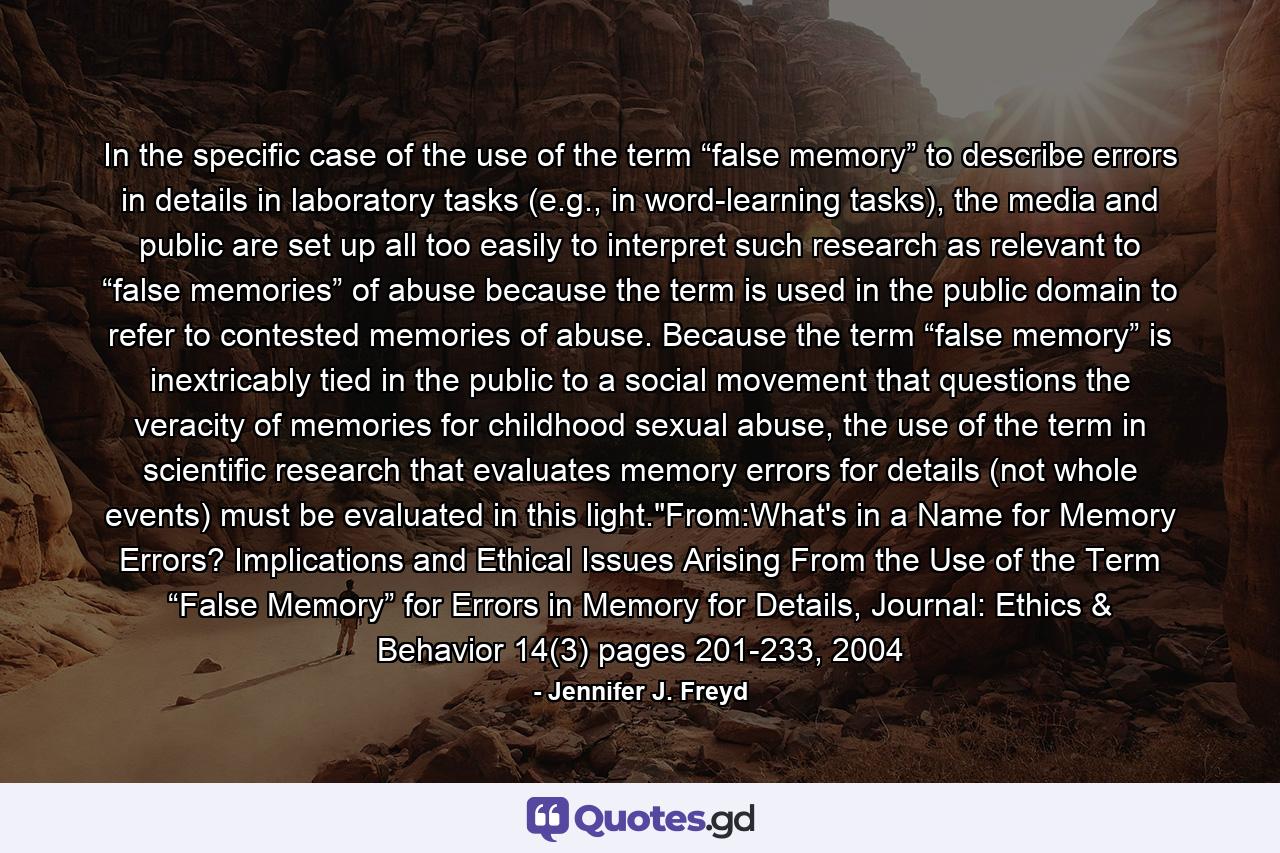In the specific case of the use of the term “false memory” to describe errors in details in laboratory tasks (e.g., in word-learning tasks), the media and public are set up all too easily to interpret such research as relevant to “false memories” of abuse because the term is used in the public domain to refer to contested memories of abuse. Because the term “false memory” is inextricably tied in the public to a social movement that questions the veracity of memories for childhood sexual abuse, the use of the term in scientific research that evaluates memory errors for details (not whole events) must be evaluated in this light.”From:What’s in a Name for Memory Errors? Implications and Ethical Issues Arising From the Use of the Term “False Memory” for Errors in Memory for Details, Journal: Ethics & Behavior 14(3) pages 201-233, 2004
